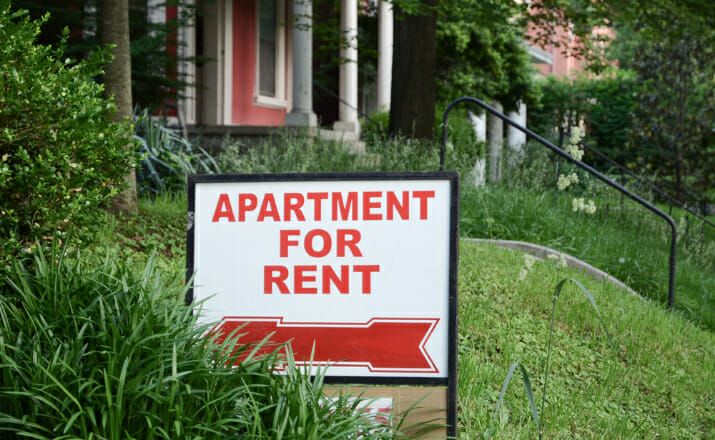
The Complete Workable Guide: How to Invest in Real Estate Right Now
The most common misconception about real estate investing is that you need to have a truckload of money in order to turn a profit. But nothing could be further from the truth. And we’ll show you how.
If you are enamored by the idea of investing but freeze when it’s time to put your money where your mouth is, then this is the place for you. Think of it as a guide to investing in rental property for beginners, your step-by-step, how-to on where to start. Find out what your options are, and how to take your dream of buying an investment property to rent, flip, or profit from and make it a reality. Read on to uncover the financial opportunities that are lying right under your nose.
- What is Real Estate Investment?
- Why Invest in Real Estate?
- Investing in Real Estate with Little Money
- Real Estate Investment Option #1: Buying Rental Property
- Real Estate Investment Option #2: Renting Out Part of Your Home
- Real Estate Investment Option #3: Real Estate Investment Trust (REIT) Funds
- Real Estate Investment Option #4: Real Estate Crowdfunding Investment Platforms
- Real Estate Investing Books to Inspire and Motivate
What is Real Estate Investment?
Real estate investment is the process of owning, managing, renting, and or selling a piece of real estate for profit. This can include purchasing a separate property or improving or partitioning a part of your own property for profit (this is technically considered real estate development, but it falls under the more general category of real estate investment).
Real estate investment is basically just making money using a property instead of your trade. What’s nice about this type of revenue is that you can make money without having to sit in an office, commute to work, or take orders from a boss. Alternatively, you can use your real estate investment as a second income in addition to your paid salary.
Why Invest in Real Estate?
Investing in real estate is one of the best investments you can make for so many reasons. To begin with, you have a higher than average return on investment with lower volatility than stocks and other assets. This doesn’t happen in the stock market. What it means is you make more money and take less of a risk than with other investments. As the market goes up, so does the value of your home. That’s a great deal on its own, but here are a few more reasons entrepreneurs, financial advisors, and investors are all putting their money into real estate.
Control Over Your Investment
Because the property is a physical asset, you can actually control any changes that occur. This includes making your own changes (renovations, additions, upgrades, etc.) to increase its value. Real estate is pretty much the only asset like this; you’ll never be able to control the risk factors on the stock market.
Real Estate Will Never Zero Out
While playing the stock market always comes with some risk of being left high and dry, real estate will never depreciate to nothing. Even if the real estate market drops, you won’t be wiped out because the value of a tangible asset is still available to you (you still have the property in hand). You can always ride out the lull until the market swings back around.
Real Estate Value Appreciates
It is a historically proven fact that your real estate investment will yield greater profit the longer you hold onto it. No matter what kind of trouble the housing market gets into, it always manages to get out and even pulls ahead whenever it makes a comeback.
Excellent Tax Benefits
From mortgage interest rate deductions to operating expenses, property taxes, and insurance coverage, there is a long list of deductions and tax benefits that homeowners enjoy that other folks just don’t (and certainly not other investments).
Investing in Real Estate with Little Money
We know what you’re thinking. All of this investment talk sounds wonderful–if you have the money to invest. But what if you don’t have hundreds of thousands of dollars of disposable income to just put aside until your investment comes through? The good news for all you doubters is that there are actually several ways you can invest in real estate even if you have little capital to invest. In fact, you can start investing in real estate with as little as $500! Now that we’ve got your attention, here are some of the most workable options:
- Buying a rental property
- Renting out part of your home/listing as a Airbnb
- Taking advantage of REIT
- Getting involved in crowdfunding platforms
Real Estate Investment Option #1: Buying Rental Property

You probably have a lot of questions. Indeed there are some points to consider: which locations are the best to invest in? How do you determine a good rental property? How does one go about financing a rental property? Can I purchase rental property without a down payment? The list goes on. So, here’s a concise breakdown of the topic of buying rental property.
One of the most common ways to make money on real estate is buying rental property. That’s because you start to get a return on your investment almost immediately by renting the property out to a tenant who pays you a monthly rent for the use of the property.
There are lots of options when investing in rental properties. For example, you can buy real estate rental properties for residential use or commercial use. You can work through a local bank, online, through a corporation, or privately with an individual seller. You can buy a rundown property to fix up and rent out for a higher value or go for the safer bet–one that has already been renovated.
Why this is a good idea: You can start earning money from your investment right away.
How you can make money from it: Once you own the property, you can rent it out to individuals or businesses for a profit.
Related: Is Being a Landlord the Right Move for You?
Buying a Rental Property With No Money Down
Sometimes you’ll find a seller who is in such a hurry (for whatever reason) to sell their property that they’re willing to work out a deal with you. It might involve making larger monthly payments in lieu of a down payment. Or you might be able to trade a smaller piece of property, valuable artwork, or other objects, or a skill that you have instead of a down payment. Some owners may allow you to take over the mortgage instead of making a down payment if they can’t afford to make the payments anymore (if this is the route you take, make sure to read the mortgage loan terms carefully as some mortgages don’t allow this type of transaction).
Remember the goal is to keep your investment property down payment as low as possible to decrease the initial investment thereby increasing the overall profit margin of the investment.
Taking Out a Loan
Again, try to keep the down payment as low as possible to increase your ROI. If you don’t have the capital upfront, mortgage loans can be an excellent way to get a start in real estate investing instead of missing out on a golden opportunity because you didn’t have the down payment.
Check out some of the most competitive quotes in the market, tailored to your financial properties:
Getting to Know the Market
There are several factors that will decide how profitable a real estate investment is, and some of these factors will change over time. For example, rental property mortgage rates can fluctuate based on the market and current trends. That’s why it’s a good idea to discuss available investment property loan rates with a financial consultant or at the very least someone at your local bank branch.
Finding Tenants
When it comes time to rent your property, there are generally two ways to find tenants: going online or DIY. The latter option involves a lot of legwork: putting out ads, printing up flyers, vetting tenants, drawing up contracts, making phone calls, etc. If this is your method, go for it.
Otherwise, going the online route will save you a lot of time and, potentially, money. It will also open you up to a much wider pool of tenants, ensuring that you find a renter faster (so your real estate investment doesn’t sit there empty, essentially losing money each month). Online sites like Airbnb make it simple, fast, and painless to list your property, find tenants, and start renting in no time. These sites let you choose what to charge for rent, how often you want to rent the space, and any requirements for tenants (e.g., no pets, no children, etc.), so they offer loads of flexibility and coverage for the property owners.
Finding Strategic Spots
Speak to any old school real estate investors, and they’ll say the same thing ‘Real estate is all about LOCATION, LOCATION, LOCATION.’ The old adage still holds true today. Finding the right areas to buy in can make the difference between a major success and a money pit. Look for areas that are strategically placed for optimal rental opportunities. These spots can be areas around universities, where employment rates and job trends are soaring, or areas with diversified economic power. Also look for areas with a good price to rent ratio, low vacancy rates, low crime statistics, and far from natural disaster zones.
Of course, there are also the tried and true favorites of real estate, the cities that are known to be goldmines for real estate investment. If you have the cash on hand for it, buy rental property in cities like Columbus, Ohio; Richmond, Virginia; St. Paul, Minnesota; St. Petersburg, Florida and Orlando, Florida. These cities have shown year-over-year increase in home values and rental yields making them obvious targets for anyone interested in buying an investment property to rent.
Invest in Developing/Growing Areas
Finally, if you’re thinking of buying an investment property to rent, it might be advantageous to look at some developing areas. These are kind of like the trendsetters or pioneers of neighborhoods. They start out small, with just a few brave individuals. And in just a few years, the entire area is built up, business is booming, and real estate has skyrocketed. If you can get in early in one of these areas, you’ll buy low, and profit big when the market shoots up.
Real Estate Investment Option #2: Renting Out Part of Your Home

There often comes a time in homeowners’ lives when they’ll ask “Can I rent part of my house to supplement my income?”. Renting out your basement, extra bedroom, attic, or garage is a great way to enjoy the advantages of real estate investing without having to deal with some of the annoying parts like complicated legal practices and major capital investments.
Depending on your home’s layout, your family makeup, and your intentions, you can turn parts of your home into long- or short-term rentals. Long term rentals are a more secure, steady income, while short-term vacation rentals can be more lucrative since you can charge more for these types of accommodations.
Why this is a good idea: It’s a real estate investment that you already own so there’s little or no additional costs. It can provide a sizeable, passive income with little effort on your part.
How you can make money from it: By renting out a part of your home, you will enjoy the benefit of an additional income with little or no extra expenses to your monthly budget. You can list on your own (usually better if you are looking for long-term rentals) or you can opt to list your property on a site like Airbnb (this is a great way to get yourself a steady flow of long- or short-term rental possibilities). Just remember, if you choose this option, to check out the Airbnb host requirements to ensure that your rental meets the requirements and that you are ready to fulfill the agreement.
List your property easily on Airbnb and start leveraging your real estate property for extra income.
IMPORTANT TIP: If you never experienced Airbnb as a host, we recommend reading some hosting materials and guides provided by Airbnb. You learn how to maximize your income, manage your bookings and keep your property secured.
Below are a few more things to consider.
Respect Your Privacy
Understand that a stranger will be living in your home. Even if you create a sufficient sound and visual partition, you are still renting part of your house, so the tenant will be living in part of your house. Make sure you are comfortable with this arrangement.
Consider Your Options
While apartment rentals will bring in the most cash, you don’t necessarily have to rent out part of your home as living quarters. You might consider partitioning a part of your home to rent as a storage unit or office space. Weigh the drawbacks and benefits of each option before you begin planning.
Understand spatial requirements & renovations
A suitable rental apartment will require all of the necessary components of a home including sleeping quarters, living area, bathroom, and kitchen. Office space and storage units will require different spatial arrangements, and each aspect needs to be planned accordingly. Consider how much space you have, how much you are willing to devote to this endeavor, and how much is required to include all of the necessary requirements. This is where a good home design software will be extremely valuable. Since most of us don’t have a true concept of spatial awareness, this software can help you see exactly how much space the rental apartment will take up and where you have the space to fit it.
Make the appropriate renovations only once you are sure this is the move you want to make and that you’ll get your investment back through short- or long-term rental payments.
With your renovations budget estimate, check out some of the most competitive renovations loans offers with the leading lenders:
Calculate Your Expenses
Make a careful calculation of how much of an initial investment you will need to make to ensure that you have the (relatively small) capital to invest. The total should include building permits, renovation costs (including materials and labor), furniture or other additional items needed to make the new space livable, and anything else you’ll need to spend money on to get this up and running. Also consider recurring expenses such as routine maintenance, property taxes, utilities, etc.
If you do not have the disposable income to invest but want to make a rental happen, one good option is to consider taking out a home renovation loan. Home renovation loans are easier to get than many other types of loans because the lender sees your home as reasonable collateral for repayment.
Learn, Understand, and Abide
Be extremely thorough when it comes to the legal aspect of renting out part of your home. If you are renting out a part of your home to a business, see what kind of fire or liability coverage you’ll need. If you are renting out your basement for storage, find out what your insurance will cover in terms of damage. Don’t forget about zoning bylaws. Each city will have its own zoning laws for renters. There are also landlord-tenant laws that vary in each state. In fact, there’s an entire body of federal laws governing landlord-tenant interactions called the Fair Housing Act. Some of the most important laws to keep in mind are:
- There is a direct prohibition against discrimination due to race, color, sex, religion, familial status, disability, or national origin.
- You may not run a credit check on a tenant without their consent, but you must let them know if something on that report was the reason the tenant was denied lodgings with you.
State laws vary from state to state, but they are no less binding or important to abide by. For example, California has a law that the landlord must provide 30-days notice if you want to increase the rent by anything less than 10%, while anything more than that requires a 60-day notification. In Washington, you have to give your tenant two-days notice if you want to enter the rental space for any reason other than an emergency. Check with your state to ensure you are able to abide by the state and local laws regarding renting your home to a tenant and read through the Federal Fair Housing Act details, so you aren’t caught in a misunderstanding that could cause you tremendous heartache later on down the road.
Taxes
Taxes are another legal aspect you’ll need to look into. The money you make from renting out part of your house is considered taxable income. The good news is you can usually get a tax advantage for long- and short-term rentals provided you comply with the laws governing the rental. So, you can claim it as a tax deduction and save on your insurance, mortgage, repairs, utilities, and more.
Lease Contracts
And finally, have a clear and thorough contract drawn up and signed every time you begin a new term with a tenant. List what responsibilities are incumbent upon both parties. Have clear entry and exit dates. Include caveats or additional rules such as the ability to extend the lease and what parameters would apply. Put all details of the rental agreement into this contract so that you aren’t left holding the bag in case something goes awry.
Advantages of Long vs. Short Term Rentals
Depending on your space, personality, and goals, short- or long-term rentals might be more suitable for you. For example, long-term rentals are better for a steady income, require less maintenance generally, and allow you to develop a real relationship with your tenants. Short term rentals, on the other hand, can bring in more money per night, are easier to find tenants for, and allow you to have the space available for other uses (check bylaws in your state if this is legal). Weigh the pros and cons to decide which is right for you.
Real Estate Investment Option #3: Real Estate Investment Trust (REIT) Funds

REIT, aka Real Estate Investment Trust, funds are some of the most popular ways for small investors to make a profit from real estate investments. This is basically like crowdsourcing property. A property is bought using the combined investment of a group of people so that each investor owns a share of real estate. The group of investors can be a part of a single corporation, but it doesn’t have to be exclusive. Often REITs are set up publicly, and complete strangers will buy into a property investment together.
The REIT is actually a separate entity unto itself, and it is mandated by several laws and regulations, making it safer and more profitable for investors. Some of the most popular REITs available today include VanEck Vectors Mortgage, iShares Residential Real Estate Capped ETF, and First Trust S&P REIT Index Fund.
The beauty of REITs is that you have the opportunity to invest in a big chunk of real estate that, without the combined capital of the group, you would otherwise never be able to. Often people will use REIT funds to invest in major real estates opportunities like commercial properties, warehouses, and shopping malls. So, if you only have a little cash to invest, this is a great option for you.
Of course, REIT funds aren’t as simple as putting down your $5 for pizza and taking your slice of the pie. Before you dive into the investment, it’s important to understand all of the factors involved including tax brackets, trading assets, how much profit for an investment you’ll end up with and more. Taking advantage of the expertise and knowledge that online brokers provide is probably your best investment because these people will help you understand all of your options, what your best move is based on the amount of capital you have to invest, and how to safeguard yourself against potential pitfalls. Ask a competent online broker:
- To explain exactly what is a real estate investment trust
- Where to buy REITs
- How to buy REITs
- Which are the best REIT companies to work with
- What is the difference between residential REIT funds and commercial REIT funds
Why this is a good idea: Because of the pooled investment capital of many, you can invest in larger properties with small amounts of money. And it’s a government-regulated investment, so it yields higher profits.
How you can make money from it: REITs offer two-fold profitability: one is the low initial cost investment, and two is the high payout percentage of these types of funds.
Additionally, you should consider these points before investing:
Which REIT is Right For You
While the general definition applies to them all, there are several different types of REITs including the three most common categories:
- Equity REITs: This is where the company owns property and makes a profit by renting it out
- Mortgage REITs: This is where the company owns a property mortgage and makes a profit by offering loans based on the property or through mortgage-backed securities
- Hybrid REITs: This is a combination of the above two types of REITs, so they invest in both mortgages and properties
Which of these is right for you will depend on several variables that you should discuss with a reliable and knowledgeable online broker who can help you come to the best investment decision.
Know the REITs Guidelines
To understand why REIT funds are such good investments, you have to know some of the guidelines that legally bind these companies. For one thing, REITs must pay out a minimum of 90% of its profits as dividends to the investors each year. So, you are guaranteed to get a big payout with this type of investment. Additionally, 75% of its total assets have to be invested in real estate, cash, or U.S. treasuries. REITs are required to have a minimum number of shareholders, so this guarantees that your initial investment will be low too.
Additionally, REITs are liquid assets that are easy to trade because they’re treated like stocks and sold on major exchanges. So, you don’t need special knowledge in order to trade these assets when you want to. Finally, REITs open up new opportunities for investors. That’s because, in addition to the standard residential properties that you are used to perusing as a real estate investor, REITs corporations are allowed to buy commercial properties. This will open up a whole new stream of real estate opportunities that are otherwise closed off to the average investor.
Streitwise – a newer REIT option open to non-accredited investors
If you are looking for an easy REIT option, Streitwise is a company we like right now. They offer the ability to invest in real estate to both accredited and unaccredited investors – making this a real option for a wide range of investors. You can start investing with just $5,000 (if you want to invest more, you can do so in increments of $500).
Streitwise is an equity-based REITs, which means it’s akin to a mutual fund that invests in many properties (giving investors a diverse portfolio). You can open an individual taxable account, an individual retirement account (IRA), or a trust. The company says they have a dividend yield of 8.4% compared to 4.75% of public REITs.
REITs in general don’t offer great liquidity – these are longer-term assets. Streitwise is no different; it has a lockout period of a year, but if you wait the full five years, you can get 100% of your net asset value (NAV).
The company invests in commercial properties – right now they have one in St. Louis and one in Indiana – and they plan to hold their properties for a decade or when property values reach a certain threshold. Streitwise will then sell the property, distributing the money to investors or investing in a new property. Streitwise charges 3% as an upfront investment fee and a 2% annual management fee (annual). This all makes Streitwise an interesting choice for those who want to get into real estate investing, are looking for exposure to the commercial market, and don’t have crazy amounts of cash. Learn more on Streitwise with out full Streitwise review.
Real Estate Investment Option #4: Real Estate Crowdfunding Investment Platforms

Just reading that heading is probably making you think “Seriously? What is real estate crowdfunding? Is this some sort of new age funding scheme for a B-rate film festival screening?” In fact, crowdfunding investments are some of the easiest, fastest, least expensive, and smartest ways for first-time investors to get serious about real estate investing and turn a profit while spending relatively small amounts of money at the same time.
Let’s start at the beginning. Real estate crowdfunding is basically buying rental properties with capital raised by crowdfunding, i.e., raising funds for a project by getting small investments from a large group of people. This is typically done online, and naturally, you can use crowdfunding platforms to fund your real estate investment as well. Crowdfunding platforms help you find other people who are interested in making these investments so that you do not have to go hunting for them yourself.
Why this is a good idea: The advantage of real estate crowdfunding is the same as that of REITs only bigger. Here’s what that means. Real estate crowdfunding opens up many investment opportunities to individuals who couldn’t afford to invest otherwise (like REITs). Crowdfunding puts a lot more power into the individual’s hands though, an added bonus. This type of real estate investment is also helpful because the crowdfunding platforms you use to organize your funds and sales take care of all of the legalities, investigating, and vetting for you, so you know you are getting a good deal if you work with one of the legitimate crowdfunding investment sites.
How you can make money from it: Buy a property for little money down, rent it out, and make a profit.
As with REITs, crowdfunding investment sites offer regular people the opportunity to capitalize on commercial properties, something that was before untouchable to the general public. Here is some important information on the subject:
Small Money Down
The beauty of crowdfunding investments is that you don’t have to come up with the big money it takes to make big investments. Instead, each person puts in a little bit, and together, that adds up to a large enough sum to invest in real estate. Does it work? Well, according to the most recent real estate crowdfunding statistics, the market is worth roughly $11 trillion. So, we’d say yes. In fact, one of the best crowdfunding sites for small money investments is Fundrise. With this crowdfunding company, you can put down as little as $500 as your initial investment. $500! That’s all it takes to make a profit in real estate today.
Huge Pool of Investors
When you try to invest in real estate on your own, you are limited to the number of investors you can bring into a project. Even if you can manage to corral some relatives, friends, and co-workers, the investor pool is still pretty shallow. With the help of crowdfunding platforms, your list of potential investors is as limitless as the internet is vast.
Choice and Voice
Unlike investing in other areas and through other methods, crowdfunding investments give the average investor tremendous opportunities. You have access to an almost endless amount of investment opportunities, and the choice is yours. You get to pick how to invest your money, what types of projects to invest in, and how the process plays out. It’s not only profitable; it’s empowering! PeerStreet is a great example of this. It offers you a wealth of commercial real estate deals that are low risk, so you can get your feet wet with the many choices available.
No Accreditation Needed
Some commercial real estate crowdfunding sites such as Fundrise, a corporation that is basically an eREITs in disguise, are excellent examples of real estate crowdfunding for non-accredited investors. This makes real estate investments a lot more accessible to many people who are just getting started in this industry.
To avoid choosing a dead-end investment with no promise for profits, you’ll want to opt for a reliable investment broker to help you make the right choices. If real estate crowdfunding sounds like something you might be interested in pursuing, here are some of the best real estate investment websites around today.
Each crowdfunding site has its own features and benefits, so once you have a better understanding of the industry itself, you might want to sit down and make a list of your own personal priorities and what you’re looking for in a real estate crowdfunding site. For example, Roofstock is a great choice if you don’t want to pay annual fees (just a one-time setup fee). That’s because this company charges nada in fees. On the other hand, you may want to go for bigger, more complex real estate investments. In that situation, you may want to look into a site like Realty Mogul. This one works with more serious investors to help them make bigger profits faster (with bigger initial investments, obviously).
Newbies to the field might prefer sticking with something like Fundrise or Rich Uncles. These both offer optimally managed investment options, small investment options, and standard single property investments to help get you started in the field. Regardless of which crowdfunding site you choose in the end, make sure they have the checkboxes you want ticked off.
On the flip side, there are online platforms — such as CrowdStreet — that are for more advanced investors. This platform gives you direct access to individual commercial real estate investment opportunities.
Real Estate Investing Books to Inspire and Motivate
Ask any expert in any field across any platform, language, skill, culture, you name it. Ask them how to become an expert in that area, and they’ll tell you–learn. Read as much as you can about the subject; learn everything there is to know; stay well-versed and up to date on the subject. Then you will be an expert, Kemosabe.
Real estate and investment giants like Warren Buffett, Benjamin Graham, and the like all encourage people to educate themselves and to stay on top of evolving trends. Basically, a good education in real estate is worth its weight in gold, literally. So, here are a few of the top reads that will motivate you to take the first step, help you make valuable decisions, and propel you forward in this lucrative and competitive industry.
- Crushing It in Apartments and Commercial Real Estate: How a Small Investor Can Make It Big
- How to Make Big Money in Small Apartments: Small is ain’t Small Indeed
- The Book on Managing Rental Properties: A Proven System for Finding, Screening, and Managing Tenants With Fewer Headaches and Maximum Profit
You’ve got the information. You’ve got the tools. And you’ve got the initial capital. Now it’s just up to you to get out there and make it happen. Become a real estate investor and realize the dream you’ve been waiting for at last.
This is a testimonial in partnership with Fundrise. We earn a commission from partner links on Consumerism Commentary. All opinions are our own.

Article comments
Providing guidance and assisting sellers and buyers in marketing and purchasing property for the right price under the best terms Provide guidance and assist sellers and buyers in marketing and purchasing property for the right price under the best terms